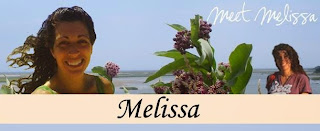I like to use short, vivid descriptions establish a rhythm and pace of the story.
Cross gazed into a metropolis of chains: tall and crooked buildings made of metal and bone, bound together in a massive web of iron links. Everything was the color of blood and rust. Every surface in that steel jungle of towers and parapets and jagged bridges was dented and browned from the touch of desert storms.
Like that. ;D
Do people judge a book by it’s cover? Who makes yours?
They do. The best book in the world can have an awful cover (and vice versa), but the cover is very important in attracting that initial eye, and I encourage authors to have their professionally done if they can. Mine are provided by the amazing Syd Gill (http://www.sydgill.com/). =D
What are the best ways to ‘show’ and not ‘tell’?
That’s a difficult one, because you’re asking me to “tell” you. ;D
When it comes to character emotions, for me it works to make those emotions into a physical description. “He was scared to go in there” is kind of cheesy. “His gut churned at the thought of going in there” is a much more visceral way of explaining the same thing. It’s also important to be cognizant of all of the senses. I still see a lot of writers stick with visual sensation, when the sound, smell, taste and tactile sensations are often much more real, and if handled properly can really make a story and experience for a reader.
How many books do you produce a year? Are you meeting your goal?
Well, this is my first year, and so far I’m on….2. (Not bad considered I started in April.) I will hopefully have 3 by the end of the year, and shooting for 2-4 over the course of an entire calendar year seems fairly realistic for me.
How many words do you produce a day? Do you have a daily quota to fill?
I don’t, but I probably should. I don’t write every day (bad), but when I get engaged with a project I’ll do about 1,200 words a day on average. When I get to about 50-60K, I’ll do my own “Nanowrimo” project to finish it out and crank production up to about 2,000 a day until it gets finished.
What is your greatest challenge as an author?
Marketing! Good grief, as if having a full-time job, a nasty commute, and two medically challenged kids wasn’t enough, promoting yourself through social networking is a lot of time and energy. Oh, and you have to keep writing, too. 8O
Do you use a professional editor, critique partners, or beta readers? Briefly describe your process.
I’ll go through a serious edit before I send anything off to beta readers, and my work with them actually coincides with the later edits. I’ll take feedback from them and apply it to my 2nd, 3rd, and 4th revisions. By the time the 5th and 6th edits roll around, I’m wondering why I ever quite smoking, drinking a lot of wine, and wishing I was better at writing drafts that didn’t need to be edited so much.
I do not use a professional editor, but probably should. Working with a limited budget only permits for so many expenses, however, and most of what I “make” goes into ISBN costs and cover art. Eventually, someday, hopefully, maybe I can afford a professional editor…in the meantime, that’s why I do 6 full revisions, and that’s been doing the trick just fine. ;D
What is you favorite part of the whole process? (Besides receiving a check or 5 star review!)
I love the part in the writing process when the entire project just “clicks”…that is, when you discover that element of the story that makes all of the other disparate pieces in your mind suddenly fit together. Sometimes it happens 1/3 of the way through the first draft, sometimes it happens during the 4th edit, but my wife always knows when it hits me, because it usually involves me walking around and talking to myself while grinning like an idiot. ;D
What are three web sites or blogs that you can recommend? (related to writing etc.)
Oh, geez, just three?
Ok…Alan Edwards, author of “The Curse of Troius”. His site is often about football, things he hates on TV, and exercise videos, but he’s *also* a writer, and his insight into the process, trials and tribulations of Indie authorship are quite keen. Oh, and he’s funny as hell. http://aravan.wordpress.com/
Jen Kirchner is the author of a number of awesome online Vote Your Own Adventures set in a an awesome futuristic world infested by demons. I’ve been beta reading her first novel, “The Fourth Channel”, and it’s excellent stuff. http://jenkirchner.com/
Icy Sedgwick is one of the most prolific and purely talented flash fiction authors you’re ever likely to find out there. Her site is just chock full of great reading content. http://www.icysedgwick.com/
Is there anything else you would like to share?
Thanks for having me! =D
My links:
BLOOD SKIES Website: http://bloodskies.com/
The BLOOD SKIES series on Amazon: http://www.amazon.com/s/ref=nb_sb_noss?url=search-alias%3Ddigital-text&field-keywords=steven+montano+blood+skies&x=11&y=21
The BLOOD SKIES series on Smashwords: http://www.smashwords.com/books/search?query=steven+montano
Follow me on Twitter: http://twitter.com/#!/Daezarkian
Facebook Fan Page: http://www.facebook.com/BloodSkies






























